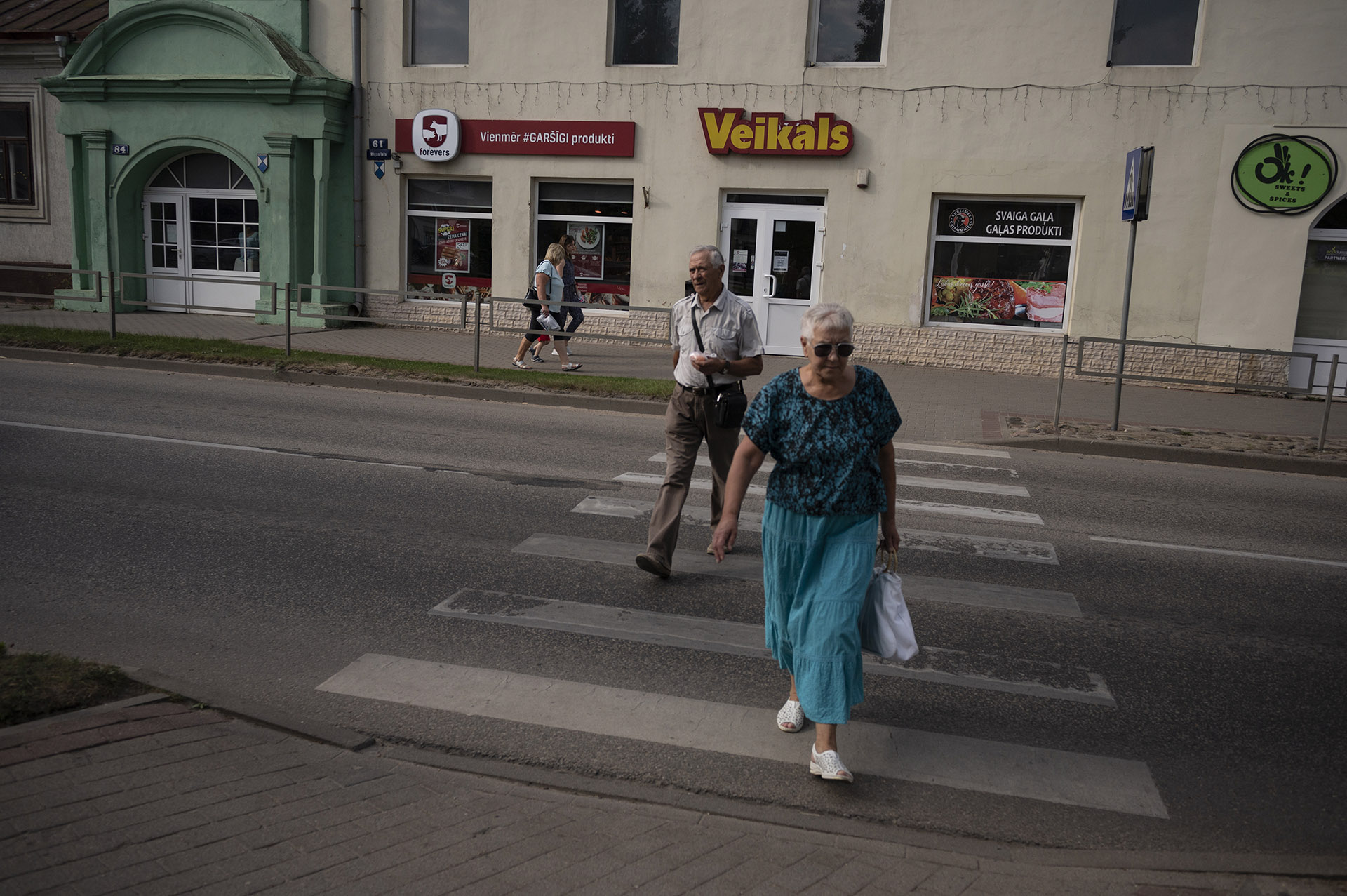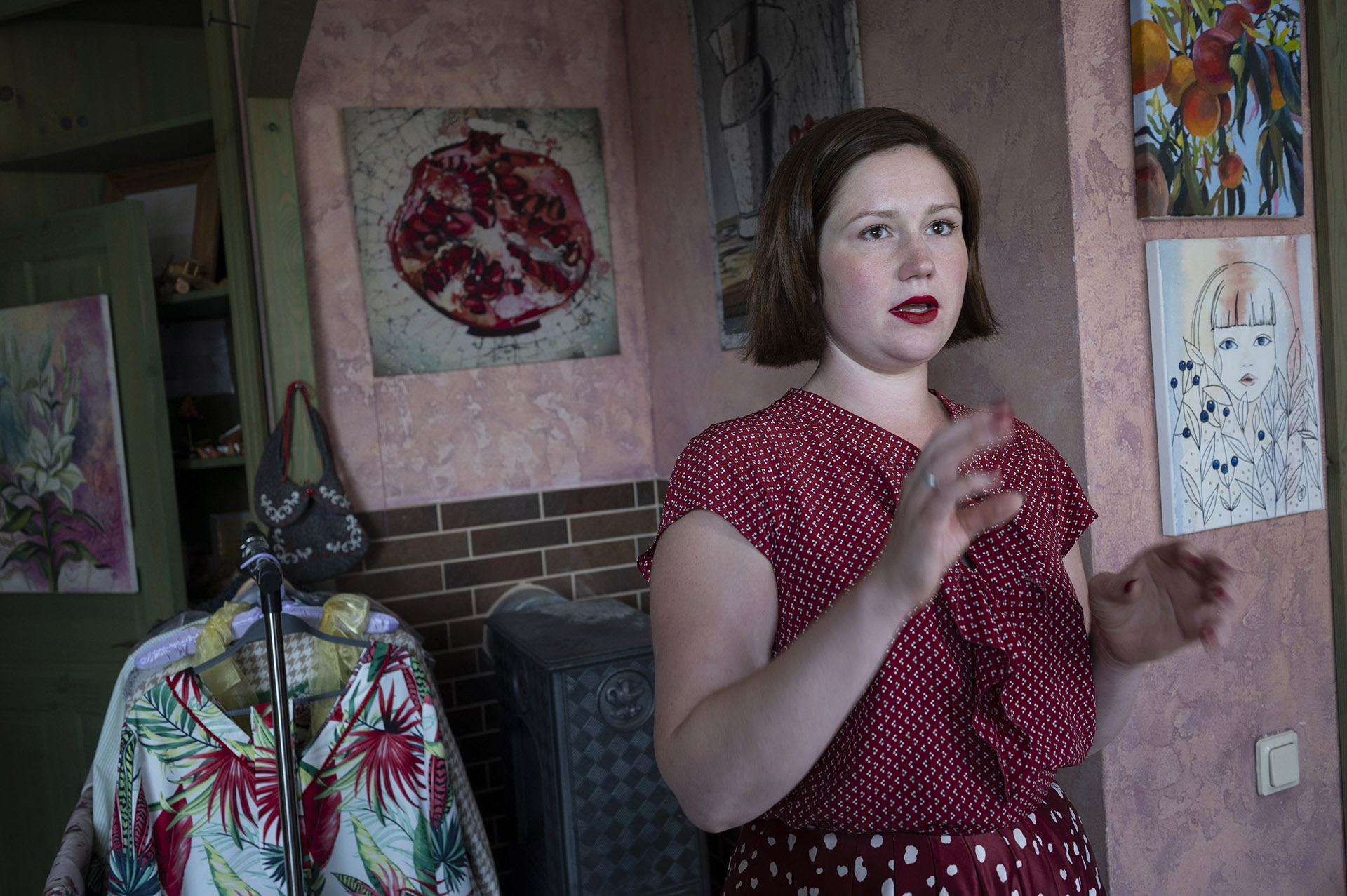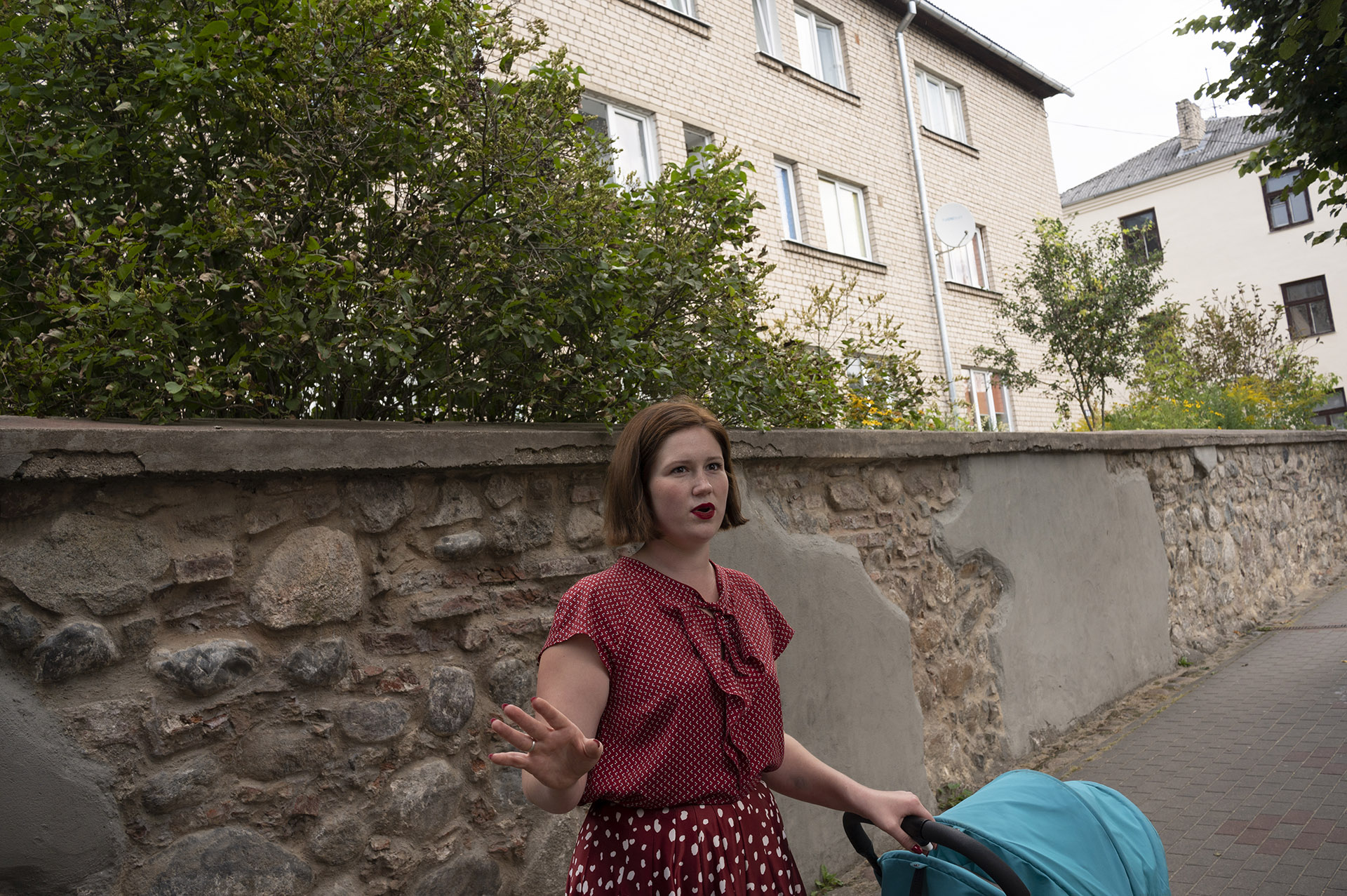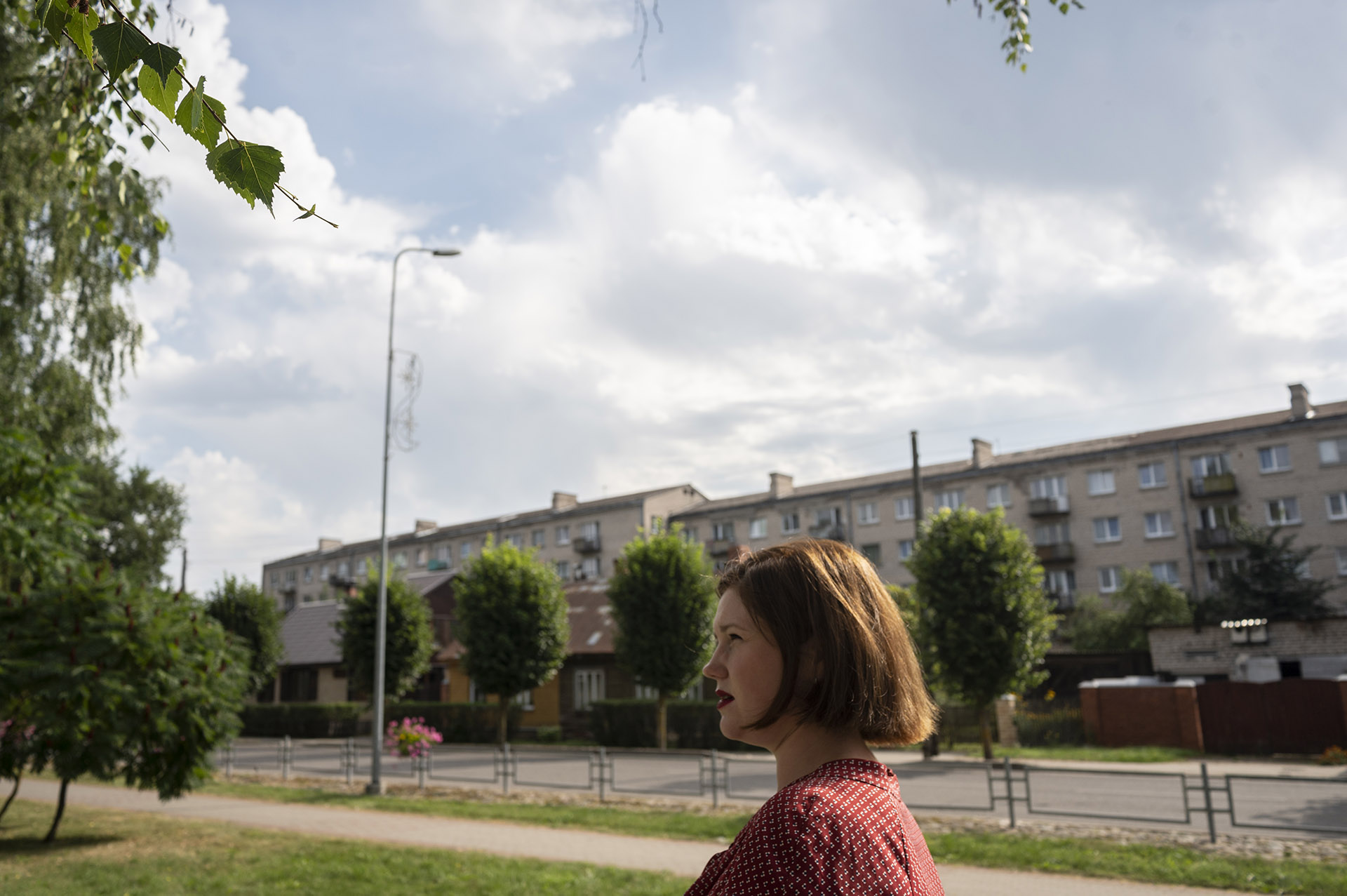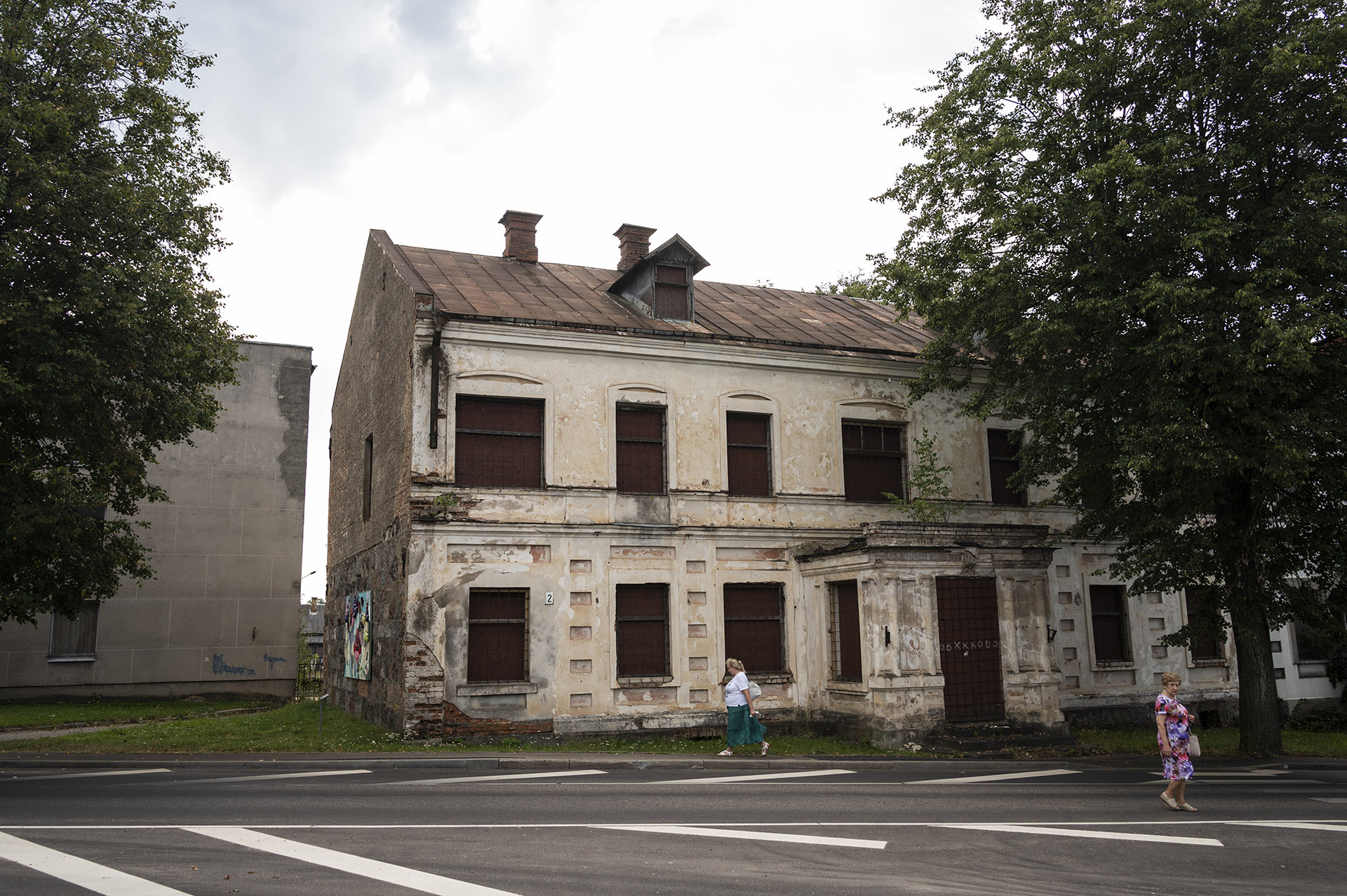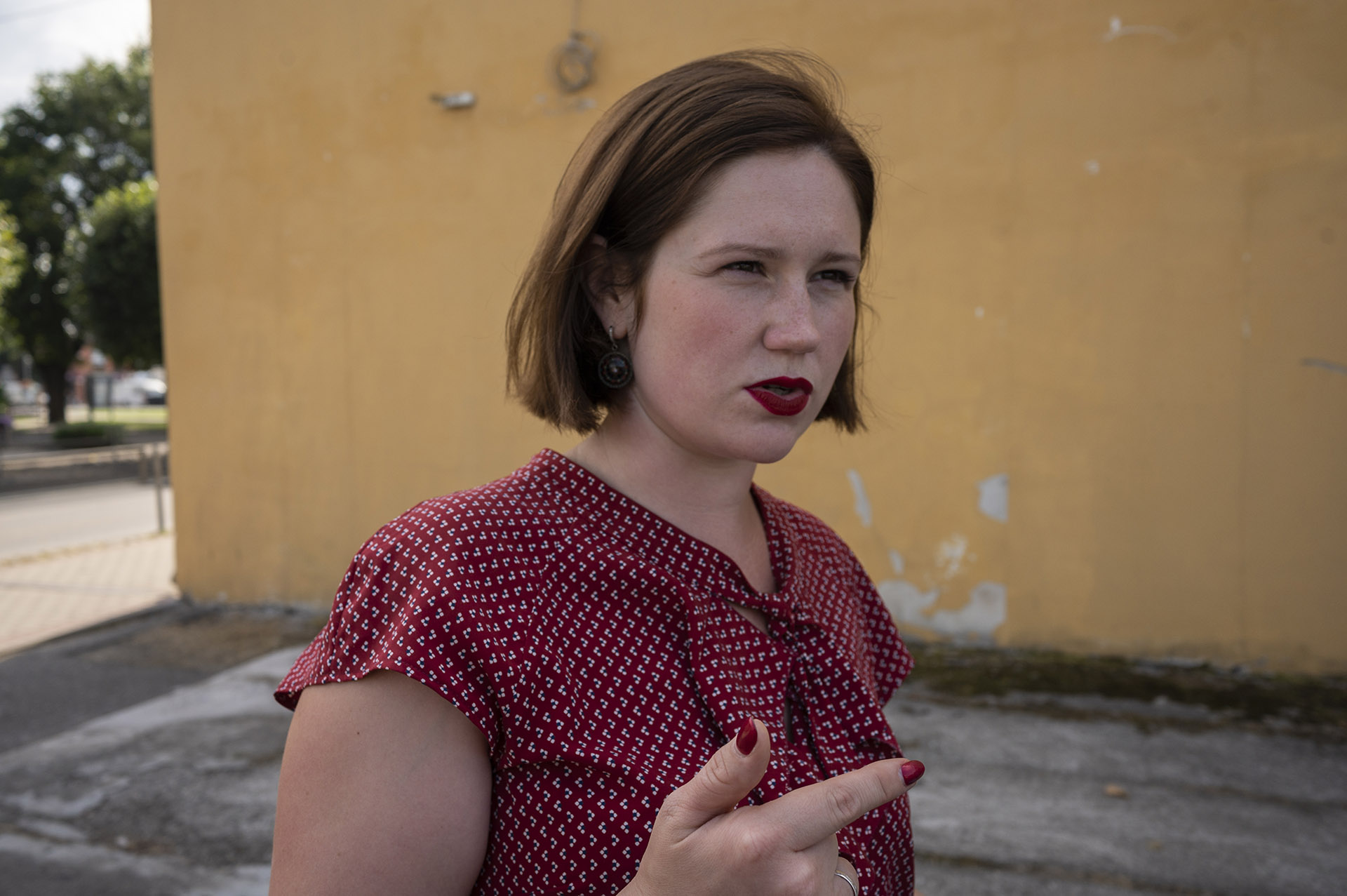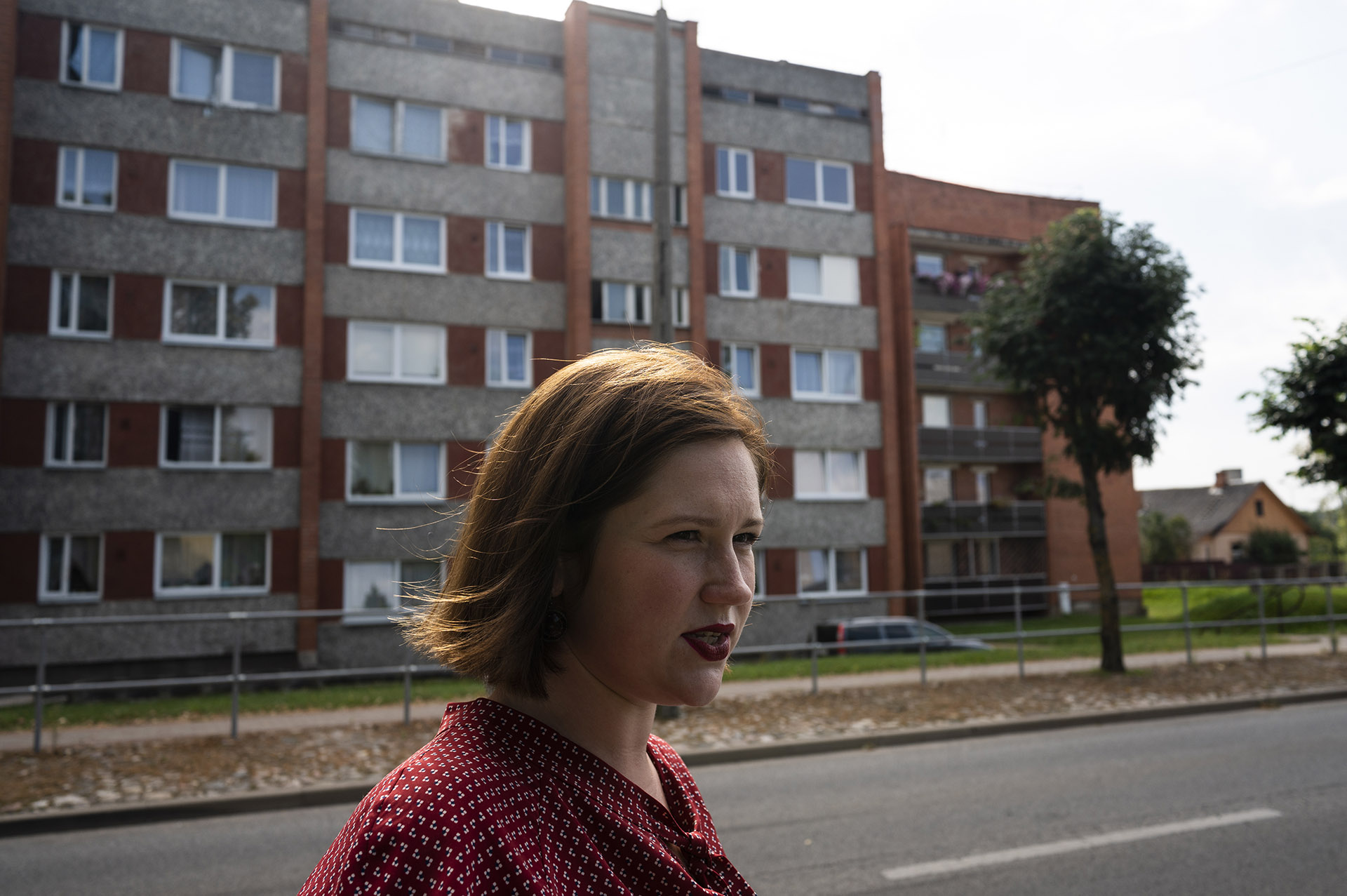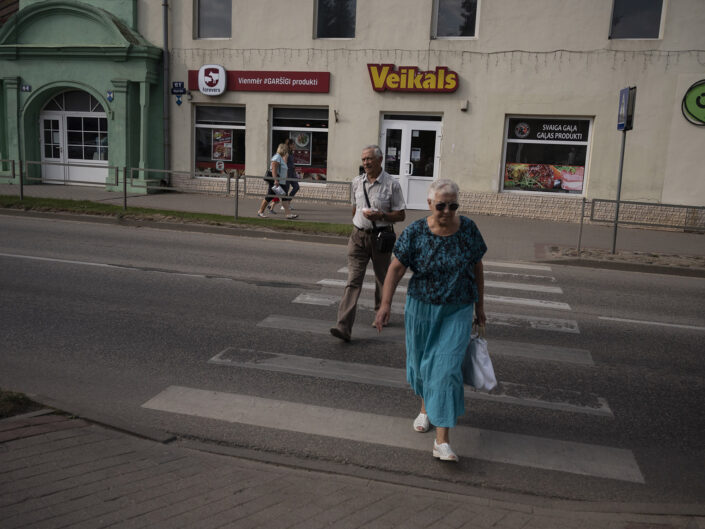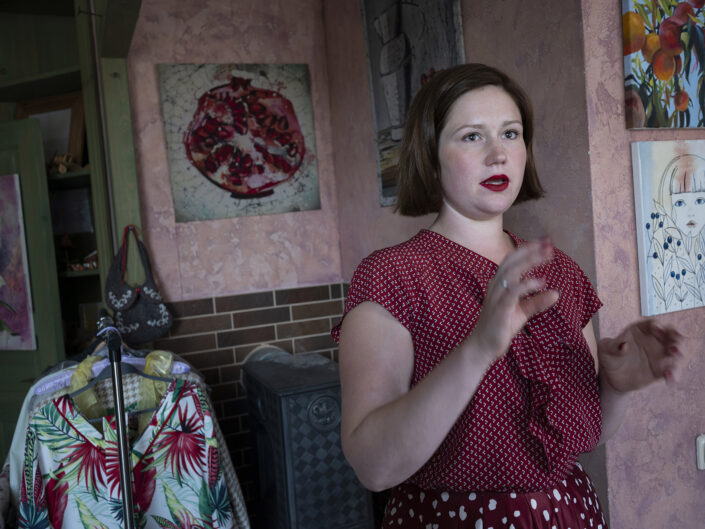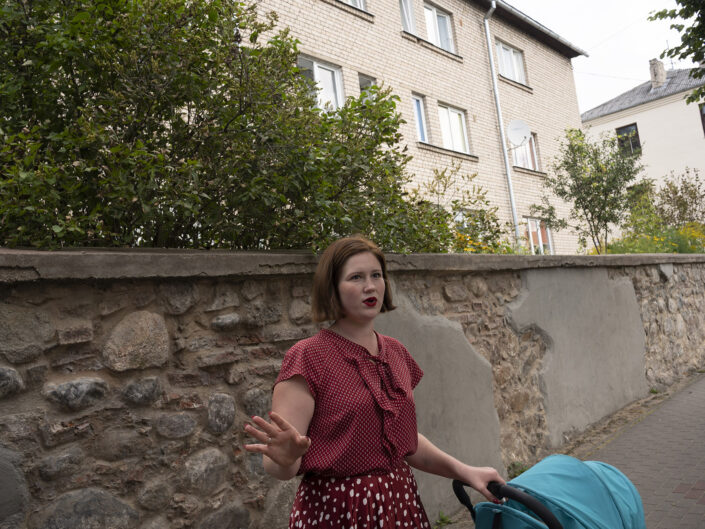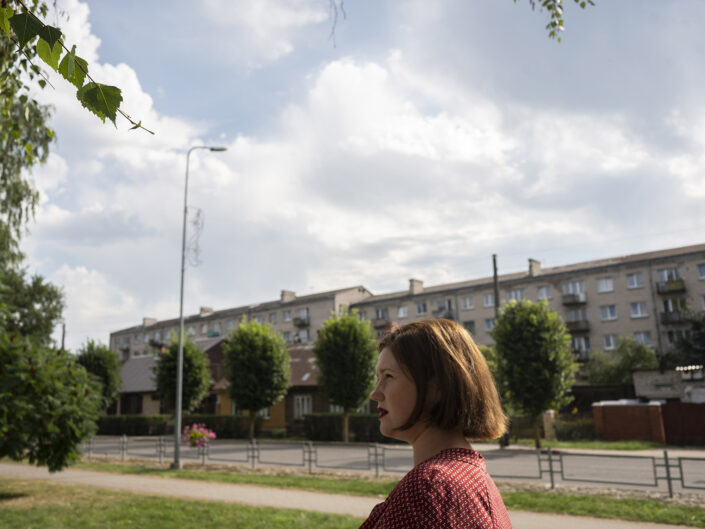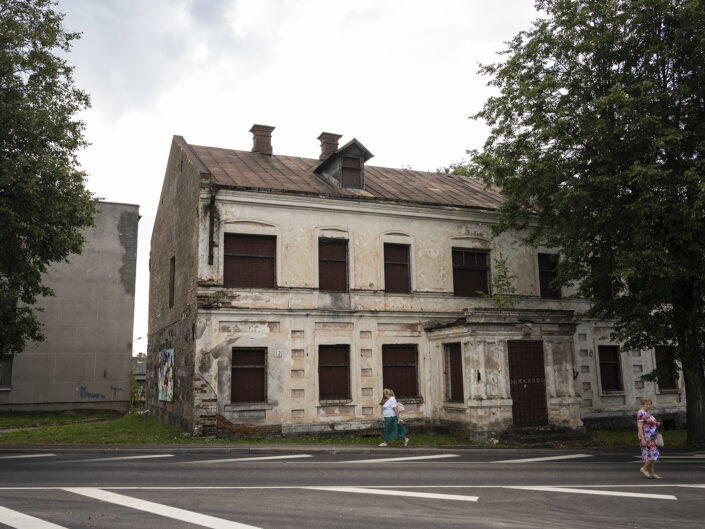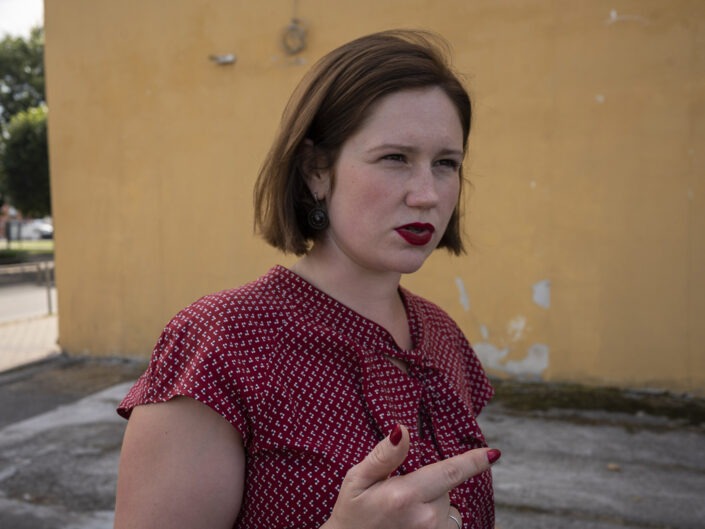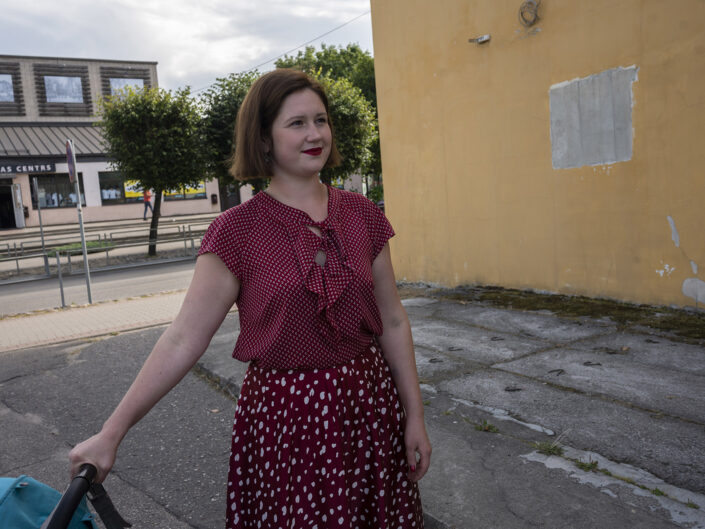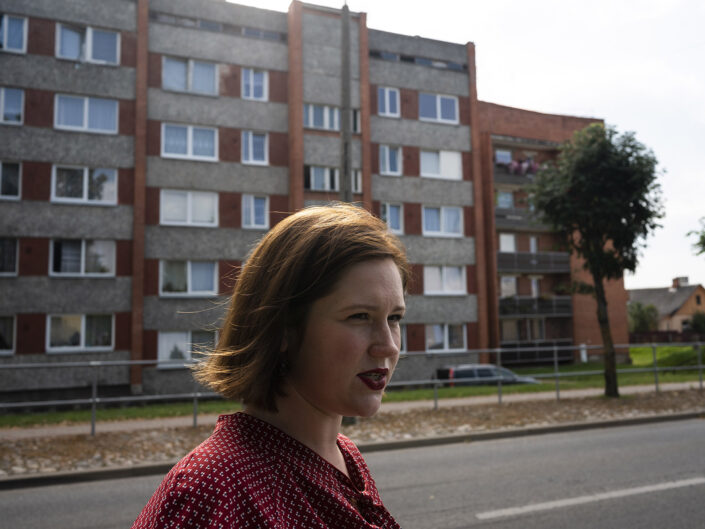Veronica
Veronica and her family returned to Kraslava during the Covid-19 pandemic lockdown. She worked in Riga before relocating to Kraslava, where she was born and raised; moving back to her native town allowed her to have more time for herself, and be closer with her family. She noted in small town people are always scrutinizing her which was not the case in Riga.
Veronica, note that the city faces challenges in revitalization to due to older generation of local politicians who are in power at the city’s municipal council. It is not easier for younger generation to get elected, as they are unknown among the locals. She added, most of the youth (20 something) do not stay in Kraslava; they move to the capital Riga or other countries abroad. She noted, there are about roughly 10 families like hers – in their 30s – live in the town. When Veronica was in high school it was common to have children early. For her, Kraslava is very much a border town where one can visibly see signs of cross border movements.
In general, there are so much to be done in the city, but because of the way of life, mindset of local politicians and nepotism the progress is inhibited. She identifies herself as Latgalian. She has taken part in singing and dancing folklore and she feels the she very much belongs in Latgale.
She noted, its not good that Latvian government closed bilingual schools as it is not easier for children to study in a language that is not their mother tongue. Of course, she added, “its important to speak the Latvian language.” Veronica’s grandfather had polish routes and spoke Russian at home. Her grandmother spoke Latgalian and Russian. She mentioned, people in Kraslava still think Belarus is a great place when they travel across the border. She believes that removal of Soviet Era monuments is not necessary as it symbolizes an act of erasing the past. She claims her self to be apolitical and believe the world cannot change in an instant. She thinks, only thing she can do is to change is her own town.


